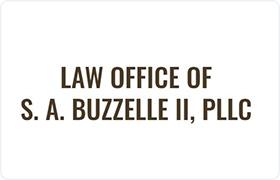Phoenix Collection Lawyer, Arizona
Sponsored Law Firm
-
 x
x

Click For More Info:
-
Law Office of S.A. Buzzelle II, PLLC
14050 N 83rd Avenue Suite 290 Peoria, AZ 85381» view mapBankruptcy & Debt Law Your Trusted Bankruptcy Attorney
If you are in need of legal services for matters relating to bankruptcy and divorce, rely on Law Office of S. A. Buzzelle II, PLLC in Peoria, AZ.
800-873-4991
Brad A Denton
✓ VERIFIEDEmployment, Lawsuit & Dispute, Business, Real Estate, Collection
Brad represents primarily small businesses, and so he practices primarily in the areas of law that small businesses need. As a practical matter, Brad ... (more)
Michael J. Fuller
✓ VERIFIEDEstate, Collection, Business, Contract, Litigation
In 1988, I started my own firm without any clients but with a steadfast commitment to practice law consistent with my own ideals and personality. I tr... (more)
Afshin Afsharimehr
Collection, Mass Torts, Personal Injury, Motor Vehicle, Disability
Status: In Good Standing Licensed: 10 Years
Alan Holcomb
Litigation, Collection, Wrongful Death, Personal Injury
Status: In Good Standing Licensed: 27 Years
Allan George Stam
Debarment, Collection, Legal Malpractice
Status: In Good Standing Licensed: 45 Years
 Stanley A. Buzzelle II Peoria, AZ
Stanley A. Buzzelle II Peoria, AZ Practice AreasExpertise
Practice AreasExpertise


